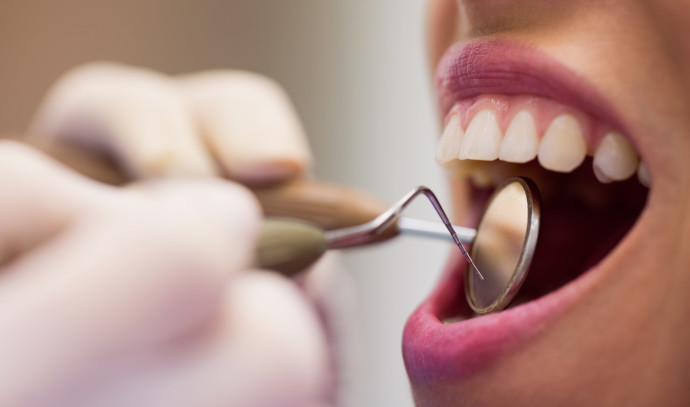Dr. Gerry Curatola, a dentist from New York who founded the “Rejuvenation Dentistry” clinic in Manhattan, opposes some of the routine methods of caring for our teeth, from brushing with charcoal toothpaste to root canals.
Here are some things we might want to start avoiding.
Mouthwash
Put the Listerine aside, the expert claims, bashing it as “another man-made creation of the consumer products industry,” he told The Daily Mail.
Despite the guidance of the American Dental Association that claims certain mouthwashes can prevent the formation of bacteria, plaque, tooth decay and gingivitis, Curatola insists they only cause harm. According to him, some mouthwashes contain preservatives that can destroy the oral microbiome.
“I’m always amazed that dentists are giving people little bottles of mouthwash on their cleaning visit that’s loaded with alcohol, artificial dyes and colors like that fluorescent blue color, made from coal tar, which is a known carcinogen,” Curatola said, according to The New York Post.
And indeed, mouthwash can be harmful if overused because it can stain the teeth, harm the microbiome and could possibly even raise one’s risk of developing cancer, Healthline noted.
Root canal
Curatola refuses to take part in root canals, saying “It’s the only procedure we do where we keep human dead tissue inside you,” according to The New York Post.
The painful procedure carries risks, with some even saying it could pose risks of cancer, though Healthline reported that this isn’t true and the biggest risk is an untreated canal.
Charcoal toothpaste
While charcoal toothpaste has risen in popularity with claims of fresh breath and white teeth, Curatola noted that can ruin tooth enamel and make your teeth overly sensitive, The New York Post reported.
Here, Curatola’s worries were reaffirmed by a number of scientific studies, showing that charcoal has little to no positive impact compared to others.
Metal fillings
While these have a long history of use in dentistry, Curatola told The Daily Mail that it isn’t safe because the metal in the filling isn’t stable and can release mercury vapor.
There is some support for this, too, with the US Food and Drug Administration (FDA) advising certain demographics from receiving metal fillings, such as pregnant women, children and those with impaired kidney function.




